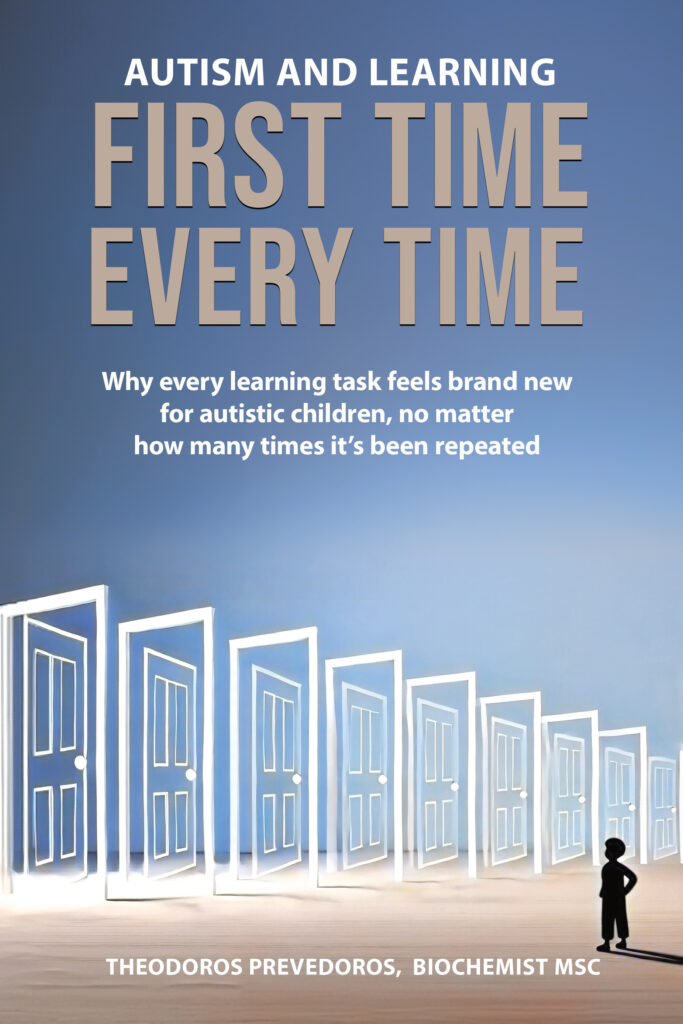
-
Clear creatine dosing ranges by age & body weight
-
Safety checklist (kidney labs, meds, who should avoid)
-
Progress tracker (speech, attention, motor learning)
Yes, creatine can be pivotal for autistic people: When creatine is insufficient, tasks requiring rapid energy, like speech and coordination fail. The creatine system is responsible for the first seconds of energy supply.
When creatine deficiencies underlie symptoms, addressing creatine biology changes outcomes. Especially, in early life, creatine buffers ATP in brain cells, which is extremely important for synapse maturation.
Low creatine levels from creatine deficiency syndromes or other genetic causes that interfere with creatine utilization are under-recognized on the autism spectrum (ASD).
Screening (metabolite assays, MR spectroscopy/MRI) and genetics identify treatable cases. Underdiagnosis and diagnostic delay are well-documented, so awareness matters. [1],[2]
A specific subset of creatinopathies, namley AGAT (agat), GAMT, and creatine transporter deficiency may cause cerebral creatine deficiencies overlapping autism/ASD. The reported prevalence within intellectual disability cohorts indicates severe underdiagnosis. [3]
Creatine deficiencies show low brain creatine on MRI, abnormal metabolite profiles, developmental delay, hypotonia, speech impairments, dysdiadochokinesia, and sometimes seizure. Early creatine can restore creatine levels and improve function and autism symptoms. [4]
Creatine transporter dysfunction blocks creatine uptake into brain cells. SLC6A8 mutation links to intellectual disability, seizure, motor issues, and autism traits. Creatine alone may be limited thus, precursor strategies are being explored. [6]

Clear creatine dosing ranges by age & body weight
Safety checklist (kidney labs, meds, who should avoid)
Progress tracker (speech, attention, motor learning)
Always start conservatively and individualize the plan. Begin with the minimum dose of creatine per kilogram of body weight, then increase by one gram at a time only after several stable days, while monitoring stools, energy, focus, motor tone, sleep, and symptoms of autism. Follow the stepwise schedule described in the book: Autism and Learning: First time every time. [7]
Parallel supports matter. Pair creatine with companion supplements aimed at oxidative stress, methylation capacity, and creatine metabolism, because unmanaged redox load or methylation bottlenecks can blunt response. Use history and labs to guide cofactor selection, timing, and administration of creatine [2]
When a quality supplement is used creatine is generally well-tolerated. Possible issues: transient GI upset, bloating, muscle cramps, or water-weight. Rarely, those with kidney disease need closer monitoring.
Medications affecting kidneys or electrolytes warrant caution. In pediatric creatine deficiencies, supervised creatine often forms standard care in AGAT/GAMT defects. Creatine may not help creatine transporter defects alone.
Track response and safety with labs and clinical follow-up; align dosing with individualized supplementation plans

| Cookie | Duration | Description |
|---|---|---|
| cookielawinfo-checkbox-analytics | 11 months | This cookie is set by GDPR Cookie Consent plugin. The cookie is used to store the user consent for the cookies in the category "Analytics". |
| cookielawinfo-checkbox-functional | 11 months | The cookie is set by GDPR cookie consent to record the user consent for the cookies in the category "Functional". |
| cookielawinfo-checkbox-necessary | 11 months | This cookie is set by GDPR Cookie Consent plugin. The cookies is used to store the user consent for the cookies in the category "Necessary". |
| cookielawinfo-checkbox-others | 11 months | This cookie is set by GDPR Cookie Consent plugin. The cookie is used to store the user consent for the cookies in the category "Other. |
| cookielawinfo-checkbox-performance | 11 months | This cookie is set by GDPR Cookie Consent plugin. The cookie is used to store the user consent for the cookies in the category "Performance". |
| viewed_cookie_policy | 11 months | The cookie is set by the GDPR Cookie Consent plugin and is used to store whether or not user has consented to the use of cookies. It does not store any personal data. |